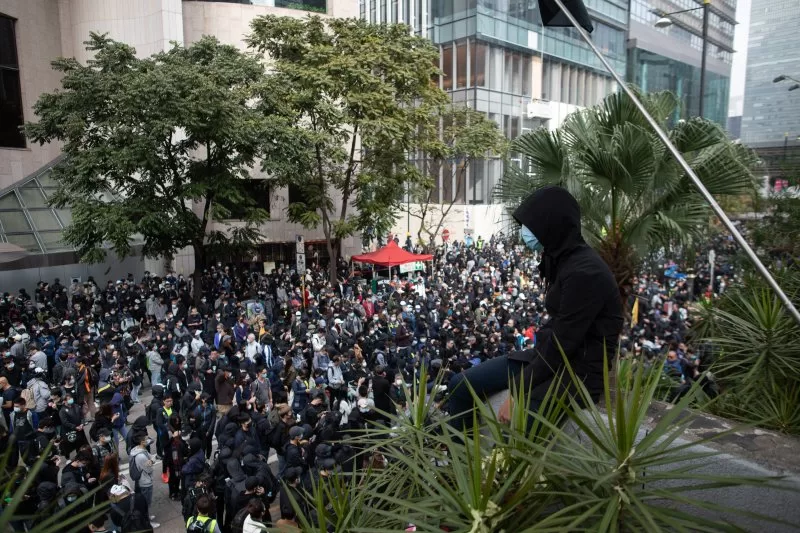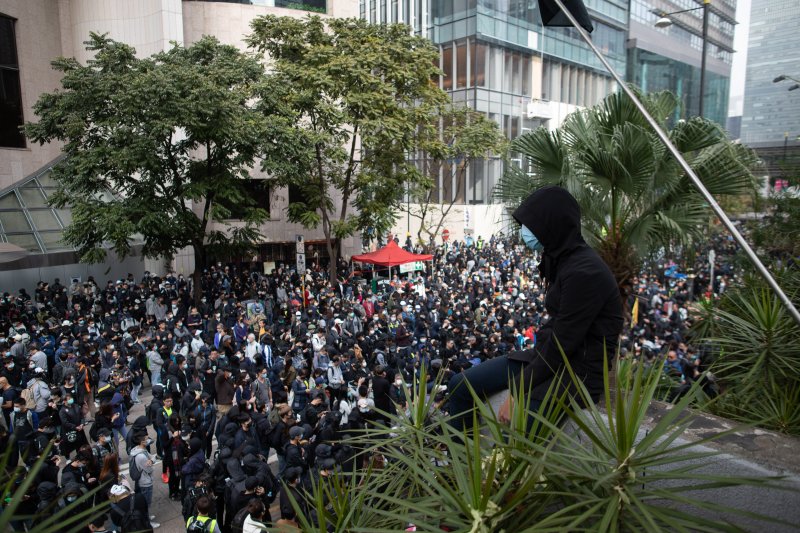Protesters take part in a pro-democracy rally in Hong Kong, China, on January 19, 2020. A 27-year-old man was convicted for violating a new security law for wearing a t-shirt to support such protests. File Photo by Jerome Favre/EPA-EFE
Sept. 16 (UPI) — A 27-year-old arrested for wearing a protest T-shirt became the first person convicted under Hong Kong’s new security law that supports Beijing.
Chu Kai-pong was convicted on one charge of doing acts with seditious intent for wearing a T-shirt with the slogan “Liberate Hong Kong, revolution of our time,” on it. He entered a guilty plea for wearing the T-shirt.
Authorities charged that the slogan could incite hatred for the “fundamental system of the state established by the constitution of the People’s Republic of China.”
Chu allegedly said he wore the T-shirt to recognize the massive 2019 pro-democracy street protests in Hong Kong, which led to city leaders establishing many of the new anti-demonstration and sedition laws at the urging of Beijing.
The new security law increased the maximum sentence for sedition from two to seven years. Those convicted could receive up to 10 years if it was proven that they were helping “foreign forces.”
Steven Kwan, Chu’s attorney, told the court that the slogan was related to the movement’s demands and not carrying out anything illegal. Kwan also said prosecutors showed no proof that anyone was radicalized by Chu’s slogan nor did it inspire anyone to take action.
The chief magistrate appointed to handle the case postponed sentencing in Chu’s case until Thursday.
Human rights non-governmental agencies along with the United Nations have complained about the law for being overly vague and broad and could sweep up many people who have no intention of sedition.
Hong Kong authorities said the law closes loops to other security laws passed after the 2019 demonstrations.

